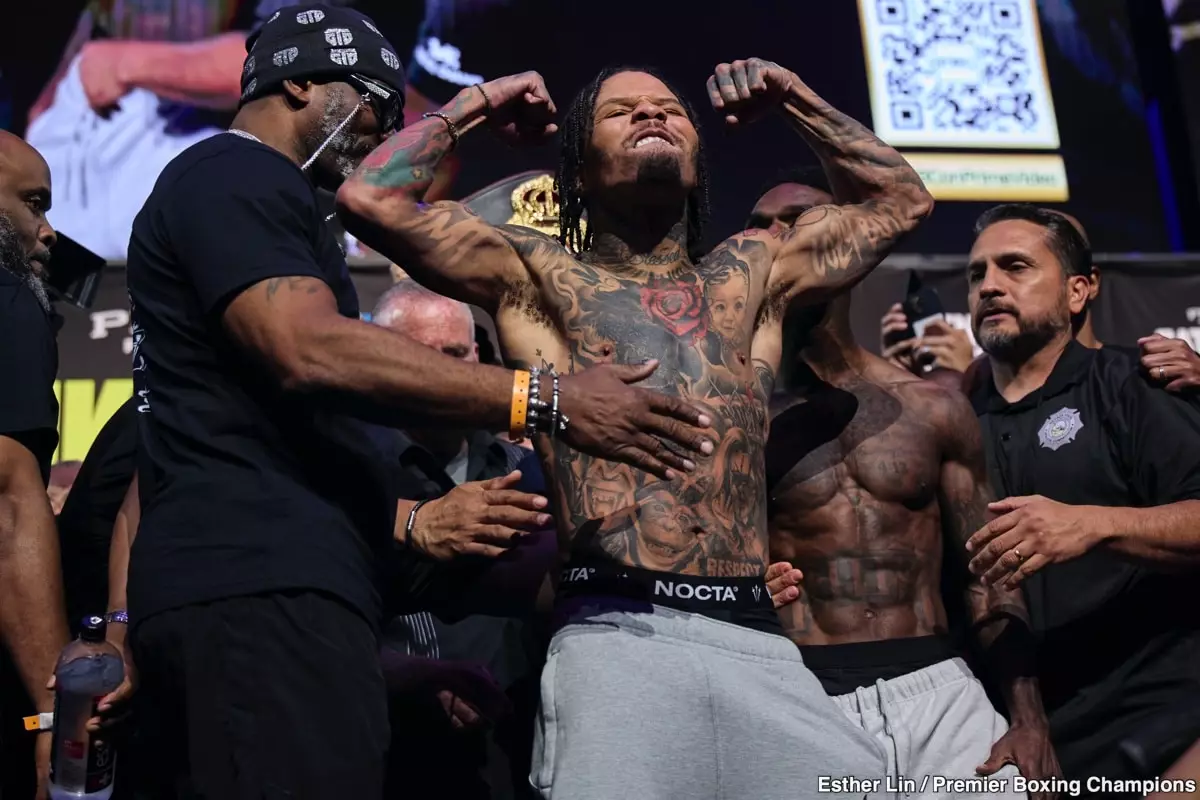In the realm of professional boxing, few figures have generated as much conversation and contentious debate as Gervonta “Tank” Davis. While he remains an undefeated champion with a striking knockout rate, the narrative surrounding his career, particularly regarding the caliber of opponents he faces, has drawn significant criticism. Veteran commentator Tim Bradley has been at the forefront of this criticism, suggesting that Davis’ rise to fame is built upon the foundation of carefully curated matchups rather than facing the league’s top contenders. This article explores Bradley’s perspective and the implications of such matchmaking on Davis’ legacy and the sport itself.
Tim Bradley’s assertions are grounded in the observation that Davis has not faced an opponent who genuinely poses a significant threat in quite some time. He likens Davis to a “30-year-old prospect,” indicating that despite his substantial professional experience, he is still being shielded from competition that would test his skills and resolve. Bradley cites the recent matchup against Lamont Roach as yet another example of Davis being put into the ring with a well-vetted opponent, one who poses little challenge.
This brings to light the broader strategies employed by promotional companies like PBC (Premier Boxing Champions). By selecting opponents who either lack the requisite skill or are at a disadvantage in terms of weight or experience, the PBC has effectively constructed an image for Davis that may be more illusion than reality. Fans and critics alike are left wondering: are they witnessing the rise of a true boxing prodigy or simply the byproduct of shrewd business moves designed to maximize revenue while minimizing risk?
Looking back at Davis’ career, it’s apparent that there have been numerous opportunities to face bonafide champions and contenders. Bradley points out that a fight with Vasiliy Lomachenko could have occurred several years ago when both fighters were at their prime. The reluctance to engage in these high-stakes bouts creates a narrative of fear surrounding Davis’ management and the potential for him to face real adversity.
The mention of Shakur Stevenson also highlights another missed opportunity. With Stevenson making waves in the division, a match between the two could have showcased not only Davis’s skills but also brought clarity to the lightweight division’s landscape. Instead, it appears that negotiations have been sidestepped, raising questions about either the confidence in Davis’ abilities or simply the desire to maintain an undefeated record against less threatening adversaries.
The implications of Davis’ selective fight history extend beyond his own career. As fans, our understanding of boxing and its champions relies heavily on the perceived legitimacy of their victories. When a fighter like Davis consistently faces lower-tier opponents, it undermines the integrity of the sport and devalues the championship titles he holds. This not only frustrates hardcore fans who crave competitive, high-stakes bouts, but it also leads to skepticism about Davis’s legacy in the long term.
Boxing thrives on narratives of overcoming adversity, skill against skill, and the glory of achieving victory against all odds. By skating through his career with carefully chosen challengers, Davis risks relegating himself to the status of a novelty rather than a true champion. The go-to assertion, “he’s never been in a 50-50 fight,” signals to critics and detractors that the foundation of his accomplishments could be perceived as fraudulent or less than genuine.
The future remains uncertain for Gervonta Davis and the trajectory of his career. Should he continue on this path of dependency on advantageous matchups, he risks eroding respect among fans and former champions alike—individuals from whom he seeks validation. However, if he can summon the fortitude to face serious contenders in the lightweight division, he has the potential to not only cement his legacy but to enrich the narrative of modern boxing.
As discussions about the integrity of the sport amplify, the boxing community is left to ponder whether Gervonta Davis will alter his approach or remain in the protective bubble created by his management. Ultimately, the choice rests with him—will he choose to fight the best and potentially risk his undefeated record, or will he continue to navigate the waters of matchups that bolster his profile with an asterisk? Time will tell, but for fans eagerly awaiting genuine competition, the hope remains that Davis embraces the challenges ahead.

